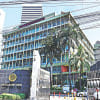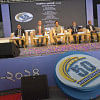A laundry list for BB governor

A new governor has joined the central bank of Bangladesh. As a leading macroeconomist, he has rightly identified inflation and the lack of discipline in the banking sector as the main culprits to be addressed. Both issues are very important, there's no doubt about it.
However, my humble reminder would be that whenever one is considering pushing inflation back, it must be kept in mind that raising interest rates alone may not be the most effective tool. There are other factors that need to be handled innovatively, especially in a country like ours.
BB Governor Mansur did talk about improving liquidity, especially foreign currency liquidity, and thereby increasing the foreign exchange reserve. I strongly believe that with less traffic diverted to the "hundi" route and more disbursement of foreign aid, our reserves should rise, and the USD/BDT exchange rate should stabilise considerably.
We must remember that the IMF and World Bank cannot provide all the bailouts. We may consider securitising receivables like remittances or telephone fees, engaging in currency swaps, issuing bonds against profitable assets, or even inviting foreign direct investment into profitable institutions.
When addressing the crucial issue of bringing discipline to the banking sector, it is important to remember that large insider loans or poorly secured loans may be difficult to recover. Sovereign debt restructuring, which involves extending the repayment period and reducing interest rates, is also crucial, particularly with a focus on recovering stolen assets.
The Hallmark case has taught us the importance of having an accepted facility offer letter and securing any doubtful or recurring past-due loans or increased credit facilities with better security and hard collateral. It also highlighted the need to potentially restructure the entire loan to ensure repayment.
Proper facility structuring and appropriate security are very important for winning a court verdict against a defaulting client. We all know court cases may take donkey years.
We have been hearing about around $100 billion in sovereign or foreign currency loans outstanding during the immediate past government. This figure was being discussed as potentially reaching approximately $120 billion with new repayments starting for the Rooppur Nuclear Power Plant, the Padma River railway project, the Karnaphuli Tunnel, and a few other government-to-government projects. Like Sri Lanka, we need to focus immediately on restructuring those sovereign debts and perhaps even consider lobbying for fresh loans.
Now, coming to the billion-dollar question of stolen asset recovery: If we believe the media reports and some international observers, billions of dollars have been siphoned out of the country by politicians and rogue businessmen close to the highest office. There was even a popular discussion in the corridors, including some ministers and advisers, about 'the government head having a fantastic tolerance towards corruption'.
Now, how do we bring it back? It is extremely, I repeat, extremely tough if one can't detect the assets or win in the courts of the host country where the money has been transferred. Though the 2012 'Mutual Legal Agreement' or Bangladesh becoming a member of the 'Egmont' group might have paved the way a bit, putting up the right case against the person or company facilitating capital flight is still extremely difficult.
The then Anti-Corruption Commission chairman, Lieutenant General Hasan Masud Chowdhury, in 2008 was very frustrated to see all the good lawyers defending the alleged person, not the government. I was, of course, not surprised.
However, one should not be too discouraged. We can seek assistance from the United Nations Office on Drugs and Crime Corruption and Economic Crime Branch under the Asset Recovery Resolution (Chapter V) or the Stolen Asset Recovery Initiative at the World Bank. However, serious political commitment from the government, competent legal counsel, and perhaps support from a relevant international consulting firm, as in the cases of Sri Lanka or a few African countries, may be very important here.
One should also remember that the governor, without support from the law ministry, finance ministry, and perhaps the supreme office, cannot do much in this regard.
The writer is the chairman of Financial Excellence Ltd

 For all latest news, follow The Daily Star's Google News channel.
For all latest news, follow The Daily Star's Google News channel. 







Comments